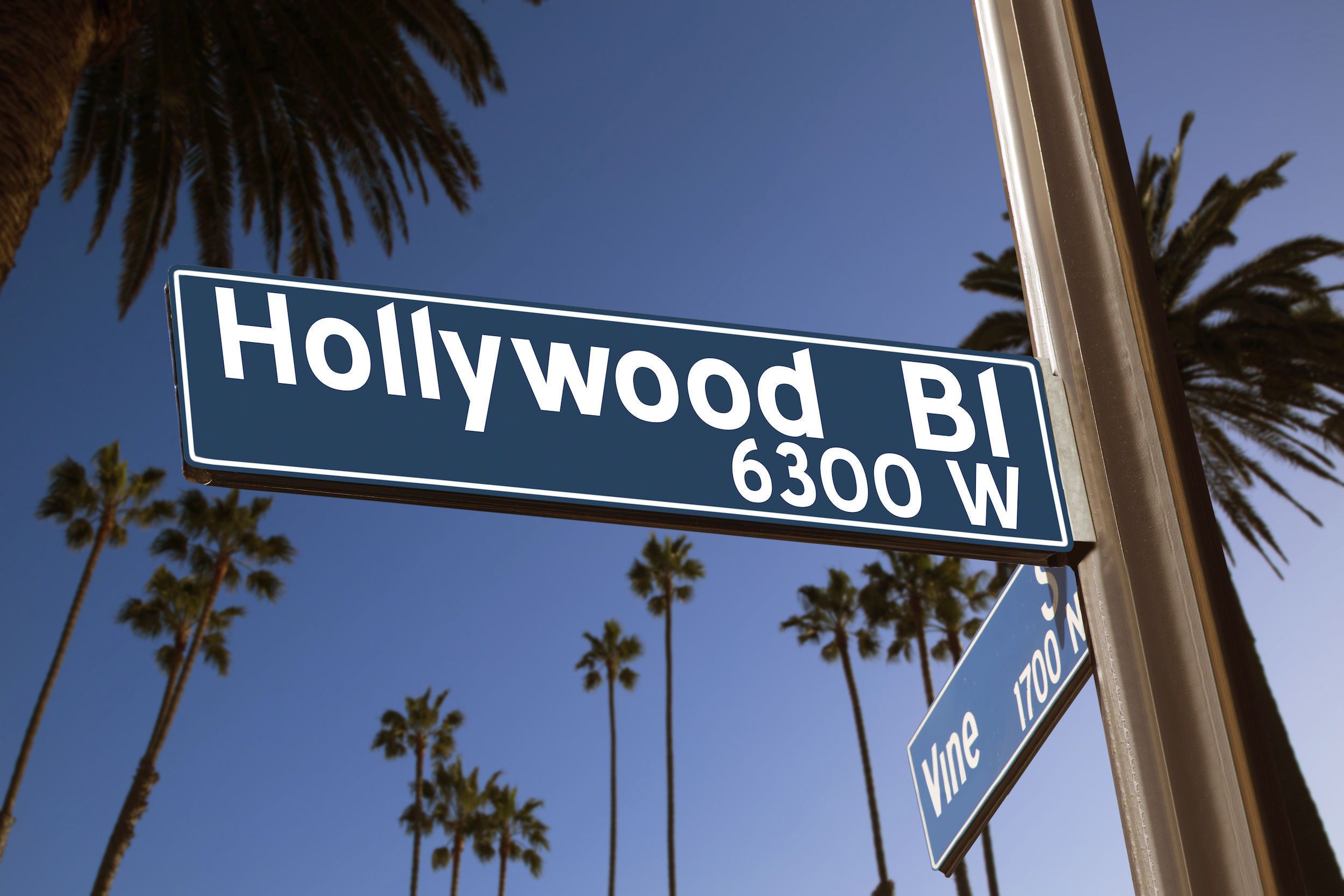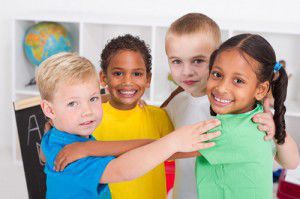10 famous faces who speak other languages
We’ve posted previously about movie and sport stars who speak other languages. But it turns out they’re not the only famous linguists, so here are a few more. Prepare to be impressed…
Audrey Hepburn
There was much more to the star of Roman Holiday and Breakfast at Tiffany’s than her movie career. Audrey Hepburn was well known for her charity work with UNICEF, and after spending her childhood in Belgium, Britain and the Netherlands, she was also fluent in English, Dutch, French, Italian, Spanish and German.
Rita Ora
Rita Ora was born in Kosovo (then called Yugoslavia) to Kosovar-Albanian parents, moving to London when she was a year old. The pop star, model and X Factor judge speaks Albanian fluently and is proud of her heritage; last year she was named an honorary ambassador for the Republic of Kosovo.
Ellen Macarthur
Former yachtswoman Dame Ellen Macarthur learnt to speak French when she was 21 and living in a French boatyard while she prepared for a solo transatlantic race. She’s now fluent and says she would never have been so successful in her career without knowing the language, which helped her build relationships with other sailors and gain sponsorship.
Eddie Izzard
Comedian (and record-breaking marathon runner) Eddie Izzard is currently touring with his stand-up show Force Majeure, which he performs three times a night, in three languages: French, German and English. In 2014, he was named the Guardian’s public language champion, and told the newspaper: “There’s a political basis for me to learning other languages, because if we don’t come together in the world then the world’s not going to make it.”
JK Rowling
JK Rowling studied French and Classics at university, and when she came up with the idea for the Harry Potter series in 1990, she was working as a bilingual secretary for Amnesty International. She later moved to Portugal and split her time between teaching English as a foreign language and writing the best-selling books.
Mark Zuckerberg
The Facebook founder surprised everyone in 2014 when, during a visit to Tsinghua University in Beijing, he started speaking Mandarin – and continued for half an hour. Though his efforts got a mixed reception from the press, the audience seemed delighted – and we were pretty impressed, too.
Jon Heder
The star of Napoleon Dynamite is a member of The Church of Jesus Christ of Latter-day Saints, and served a two-year religious mission to Japan after high school, where he became fluent in the language. And though he now describes himself as “a little rusty”, he still sounds pretty good to us.
Tim Peake
Tim Peake is the first British astronaut to go to the International Space Station – but before leaving Earth he had to learn Russian (the language of the controls in the Soyuz capsule used to get to the ISS), and has described this as the hardest part of his 14 months’ training.
Tom Hiddleston
Okay so we already mentioned Tom Hiddleston in our last post, but frankly, we never get bored of listening to him speaking loads of languages – among them French, Spanish, Greek and Italian, plus some Mandarin, Russian and Korean. And he studied Latin at university…
Viggo Mortensen
The Lord of the Rings star was born in New York, but spent his childhood in Venezuela, Denmark and Argentina, leaving him fluent in English, Spanish and Danish. He also speaks some French and Italian, and understands Norwegian and Swedish.
Does your favourite celebrity make the list?
Why children should learn a second language
The Scottish Government has committed to every child learning a second language at the age of 5. Alongside this, they’ll learn an additional language in P5, which means children will know 3 languages by the time they leave school. It’s called the 1+2 policy and we think it’s a great pledge, as there are so many reasons why children should learn another language.
Increase their skills
Earlier this week an article came out stating that ‘bilingual babies are smarter’. Growing up learning or hearing a second language helps to increase their learning capabilities including problem solving and memory. This means not only do children benefit from knowing a second language; it also helps them improve across all other subjects that they’re learning.
Future needs
This may seem like extreme forward planning, but as the world continues to internationalise, employers are looking to their potential employees for language skills. Business is conducted worldwide and the need to understand and communicate with other cultures is massive. Having the ability to learn a language at a young age is an excellent skill to have.
Enthusiasm
Secondary schools in the UK teach a foreign language in years 7 to 9, with it being optional for students to take a language at GCSE. Starting languages in primary schools could create the enthusiasm needed to help with the uptake of GCSE and A-level languages. It can help to show students that languages aren’t necessarily a risky option at GCSE/A-level, instead they are fun and there are ways that you can learn a language and do well with it!
Primary schools that have been a part of the Junior Language Challenge have found children love to learn languages. Those that get to the final of the challenge have had the chance to learn three new languages; many of them have chosen to enter again the year after too!
Multi cultural
There are such a large variety of cultures in the UK, in one primary school there are 20 different languages spoken. Not one of these speak English as a first language, so equipping children with the skills to learn a language will make it easier for them to pick up English and communicate with each other.
European Countries
In 2012 the European Commission report found only 9% of English students were reaching ‘independent learner’ level when it came to languages. This is tiny compared to Sweden’s 82% level; the UK is actually joint bottom when it comes to learning foreign languages. In Luxembourg children are offered the chance to learn 3 languages during their time at school. Clearly learning a language is an area the UK needs to invest in more – and Scotland are leading the way!
Kernow Bys Vyken!
It’s not often you hear the Cornish language spoken in the streets of London. To be honest, it’s not often you hear it in the streets of Cornwall, although I promise it does happen, if you know where to look.
But this weekend was an exception, because Saturday was St Piran’s Day, the national day of Cornwall, and London was celebrating in style with its annual Shoreditch celebration, Kernow In The City.
So what’s it all about?
Drinking heavily!
No, I’m joking, of course – in fact, I find St Piran’s Day is one of the more sober Cornish celebrations, as it’s really more about celebrating the culture of Cornwall. Back home, different towns have different traditions, but usually there’ll be music and singing, a parade of some sort, perhaps some dancing and dressing up, occasionally a pasty competition. In Westminster, the Cornish MPs hold a cultural reception which aims to teach more about Cornwall’s identity and culture.
The Shoreditch evening event, which I’ve been going to for a good 4 or 5 years, is also primarily a cultural celebration, with different Cornish talent every year and a heavy focus on music (this year featured the amazing Flats and Sharps as the grand finale, last year saw The Oggymen taking centre stage), as well as a variety of comedians (The Kernow King has been guest of honour in the past, and still usually makes a remote appearance via video).
But get a lot of pining ex-pat Cornish together and a few kegs of Betty Stogs beer and it will inevitably turn into a somewhat tipsy affair, with plenty of drunken dancing by the end of the evening. And that’s part of the reason I love Kernow In The City: every year I take along a few non-Cornish people, who tentatively agree to attend in the full expectation of being hounded out of the venue for being English, and although some of the in-jokes about miniature Cornish villages do go over their heads, and the bilingual compering leaves plenty to be understood, by the end of the evening they’re usually bellowing out the words to Trelawney (our national anthem) with great passion, and dancing with total strangers.
Nothing could do more to dispel the myth of the Cornish cold shoulder than the St Piran’s Day event: take a small interest in Cornish culture and you really will be welcomed with open arms. Learn a couple of words of Cornish and you’ll be the talk of the town. And if you’re going to learn anything, learn these three words: Kernow Bys Vyken (Cornwall For Ever), a toast to make you Cornish friends for life.
Proper job!
Nat
10 movie stars who speak more than one language
 They’re rich, famous, attractive… and guess what? These ten actors and actresses also speak more than one language. Some of them grew up in other countries before arriving in Hollywood, while others have discovered a love for languages through their work and travel.
They’re rich, famous, attractive… and guess what? These ten actors and actresses also speak more than one language. Some of them grew up in other countries before arriving in Hollywood, while others have discovered a love for languages through their work and travel.
But are they any good? Check out the videos and judge for yourself…
Natalie Portman
The Star Wars actress can speak such a variety of languages from across the globe. Born in Jerusalem, she moved to the USA aged 3 and learned Hebrew at a Jewish elementary school. She’s since studied Spanish, German, Japanese and English. This woman is exceptionally talented.
Jodie Foster
The very intelligent Jodie Foster is fluent in French and understands Italian, German and Spanish from her frequent travels around the world. Her French is so good, she’s even dubbed herself in French-language versions of her movies.
Tom Hiddleston
This gentleman astounds us; he can speak eight languages, and yes that is eight! He is however only fluent in four of them, which are: Spanish, English, French and Greek. We’re certainly very impressed.
Penélope Cruz
Penélope Cruz could most certainly be called a polyglot, as she can speak a total of four languages fluently: Spanish, French, Italian and English. Born in Madrid, she learned French at school, and studied Italian to help her get a role in Non Ti Muovere (Don’t Move), for which she went on to win a David di Donatello award.
Sandra Oh
The Grey’s Anatomy star was born in Canada to Korean parents, and was brought up learning four languages. She is now fluent in English, Korean, Spanish and French.
Charlize Theron
Many people know that this Oscar-winning actress was born in South Africa; whilst she was there she learnt to speak fluent Afrikaans – and also Dutch, as they’re very similar languages.
Bradley Cooper
As if he didn’t have enough going for him already, Bradley Cooper – a.k.a. People’s Sexiest Man Alive 2011 – is also fluent in French. I think a lot of ladies just swooned.
Mila Kunis
Mila Kunis lived in Ukraine until she was seven, and today she is still fluent in Russian. When she arrived in the USA, she didn’t speak any English, and has since described the experience of starting school as like ‘being blind and deaf at age seven’.
Gwyneth Paltrow
After an exchange programme in the Spanish town of Talavera de la Reina when she was a teenager, Gwyneth Paltrow fell in love with the country, and still visits regularly. Unsurprisingly, she is now fluent in Spanish and often speaks the language to her children.
Sandra Bullock
The daughter of an American army officer and a German opera singer, Sandra Bullock lived in Germany for twelve years, often accompanying her mother on European tours. She made her first stage appearance in an opera in Nuremberg, aged 5.
Did you know that these celebrities spoke other languages? And do you know any others that are bilingual?
Amy
The benefits of exposing younger children to multiple languages
Today we have a guest post by Stephen Thomas, on behalf of Pearson PTE, on why it’s important to expose children to other languages at a young age.
Why expose children to other languages?
Communication is fundamentally part of what makes us unique organisms on earth. The way that we have developed language to exchange concepts, ideas, narratives and so on with sounds that are culturally recognised to the degree of complexity we have, is distinctive and unmatched by any other organism.
Clearly then, learning a language reaps obvious benefits: we can learn and understand new things with ease, retain ideas throughout decades, make each other laugh and cry, discuss, debate and develop the most fundamental questions of philosophy – all through using just one language. So aside from the want or need to communicate with speakers of a different language, is there any benefit of being bilingual or raising children that are bilingual? Well, Pearson PTE spoke with Dr Catriona Morrison, senior lecturer in psychology at The University of Leeds who advised that there is evidence to support the notion that merely exposing children under the age of five to other languages has benefits, regardless of whether or not they become bilingual.
Between the age of 3 and 6 is a vital stage of childhood in terms of language learning and development. The malleable mind of a child
at this age is like a sponge and Dr Morrison advises that “after the age of five, it is highly unlikely to acquire the mother tongue of a language if it is not yet already acquired”. Although in later childhood or adult life we may learn a new language, we can be sure that we do not learn it with anything like the same ease that we would as a child. After this crucial point in child development there begins a change in the human brain that effectively shuts down the ability to ‘naturally’ learn language. Of course that doesn’t mean you can’t learn a language in adulthood, but if you have, I’m sure you will agree that it is much more difficult in contrast to a truly bilingual person (who learned two languages before this crucial stage) whereby the two languages are seamlessly managed within the brain as though they were one.
Beyond the communicative advantages, research suggests that bilingual children have better capacities for storytelling and interpretation. The processing of information seems to happen at a deeper level and they will think through and into the story more. So for example, statistically if we were to take a group of monolingual children and a group of bilingual children and tell them a story, when we ask them to recount the narrative and characters, the bilingual children will show evidence of deeper understanding and a higher level of information processing.
Furthermore, Dr Morrison suggested that bilingualism seems to act as a preventative mechanism against the onset of dementia or Alzheimer’s disease. Although it will not create immunity and one may still fall to the condition, statistically if it is going to happen it will happen later in life, when compared to monolingual sufferers. In layman’s terms this could be because one is using more of the brain when accessing two or more languages and thus the brain is more active, and an active mind is a healthy mind.
How can we help children to discover languages?
So if you are a monolingual parent and you see the benefits of bilingualism in younger children, how should you go about helping your child? Realistically, a child of monolingual parents isn’t going to become bilingual, even with partial immersion in other languages through accessing foreign television radio or sending them to a nursery that caters for multiple languages. This is why Dr Morrison agrees that it is such a tragedy that the UK’s schooling system doesn’t introduce children to other languages as it is at this vital time of youth that we have the change to expand their minds in a way that isn’t possible at any other stage of life.
However, this doesn’t mean that the exposure is pointless or irrelevant: “I have a lot of faith in the idea that the more languages a child is exposed to, the better,” says Dr Morrison. Part of what makes language learning hard is that a new language draws on an entirely alien phonemic inventory to what we are used to hearing. When we try to listen to and learn these sounds, our brain simply isn’t accustomed to hearing them. So there is definitely a benefit for parents endeavouring to expose children to these sounds that they would otherwise be starved of and therefore selectively excluded from the brain; absolutely do allow your children to watch foreign TV shows or listen to internet radio form other countries and if possible encourage human interaction with your child and other language speakers. This will only help and bolster their learning and development.
Stephen Thomas
If you’d like your children to start learning a language, why not try our Vocabulary Builder program? With its colourful characters and fun games, it’s a great start for young learners – and it’s available in over 100 languages.




